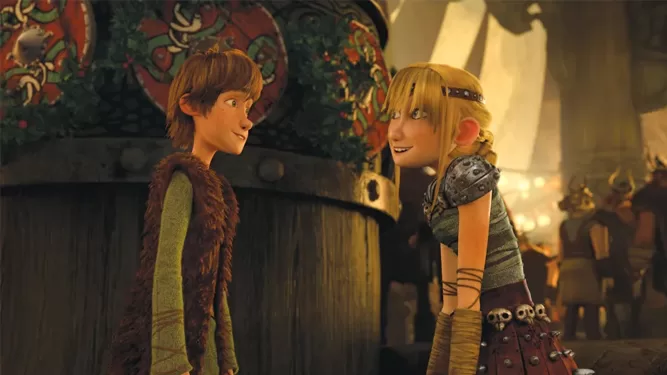In the realm of animation-to-live-action adaptations, How to Train Your Dragon ,Disney’s successes have been indisputable in the commercial arena. However, critical reception has been a mixed bag, with many facing recurring criticisms. Interestingly, a rival studio appears to be following Disney’s lead, as Universal Pictures, the parent company of DreamWorks, announced a live-action remake of How to Train Your Dragon. While this venture may establish a precedent for translating popular DreamWorks animations, it also raises concerns of discordant results akin to Disney’s endeavors. Nevertheless, the How to Train Your Dragon remake holds promise in addressing a longstanding issue that has plagued Disney’s attempts.
A pivotal critique of Disney’s live-action remakes revolves around the absence of the original directors and writers. From The Lion King and Aladdin to Mulan and Beauty and the Beast, Disney enlisted entirely new creative teams to transform their cherished animated classics into live-action, resulting in some feeling disconnected from the heart, style, and vision that endeared the originals. In stark contrast, DreamWorks has assured that the live-action remake of How to Train Your Dragon will circumvent this very issue.
With the announcement of the How to Train Your Dragon remake, Deadline revealed that Dean DeBlois, the writer-director of the original animated trilogy, was entrusted with writing, directing, and producing the live-action adaptation. DeBlois’ return promises to sidestep the pitfalls that have beset some of Disney’s live-action remakes. This reacquisition of the original creative force behind the animated film marks a significant step for the How to Train Your Dragon remake, signaling hope that the 2025 release will not only mirror the tone and style of the original but, more crucially, recapture the heartfelt essence that has been conspicuously absent in recent transitions from animation to live-action.
Beyond the return of the original director for How to Train Your Dragon’s remake, there exist other elements within Disney’s conglomerate that may offer remedies for the issues that have plagued the studio’s live-action remakes. Lucasfilm, another Disney-owned studio, recently triumphed with the release of Ahsoka on Disney+, receiving both critical acclaim and commercial success. This achievement can be attributed to Dave Filoni, a stalwart figure in the Star Wars universe, who embarked on his Hollywood journey working on animated TV shows like Avatar: The Last Airbender and, most notably, Star Wars: The Clone Wars, under the guidance of George Lucas himself.
After contributing to The Clone Wars and its spiritual successor, the animated Star Wars Rebels, Filoni made a seamless transition to live-action filmmaking with The Mandalorian, The Book of Boba Fett, and Ahsoka. His triumphant foray into these series led to Filoni’s appointment as director for one of the three forthcoming Star Wars movies. This success story underscores the efficacy of enlisting filmmakers with a foundation in animation to helm live-action projects—an invaluable lesson that Disney should take to heart as they embark on future live-action adaptations of their classic animated properties, in conjunction with the promising precedent set by the forthcoming How to Train Your Dragon remake.”

3 thoughts on “Reviving Classics: How DreamWorks’ Approach Sets it Apart from Disney’s Live-Action Remakes of How to train your dragon”